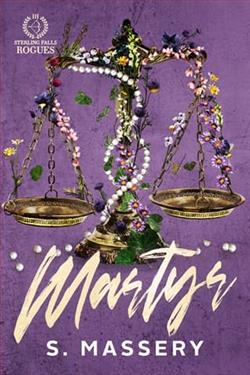Page 101 of Last Letter Home
‘Congratulations!’ Briony said politely, something teasing at the edge of her memory. Mariella’s daughter, a quiet, solemn girl stowing linen in a cupboard.
‘Please, you don’t understand. It is the Mei family who wanted the Villa Teresa. All these years. And now Ciara and Piero will marry and the Villa Teresa will be theirs.’
And suddenly it all made sense. ‘The girl in the café just now, remember?’ she told Luke excitedly. ‘I thought she looked familiar. She’s changed so much in a year, Mariella. I didn’t recognize her.’
‘She is twenty-one now, cara, but yes, you’re right. Love has made her beautiful – and a little, how shall we say, advice from her mama! And Piero, his father, he pay for the villa.’
As Mariella talked, Briony gradually realized that the Mei family – she’d not heard the name on the memorial plaque pronounced correctly before – were young Antonio’s. It had been Antonio’s father who had returned to Tuana after the war and initiated legal proceedings against Mariella’s grandfather for possession of the Villa Teresa!
‘Like the Montagues and the Capulets, a very Italian ending,’ as her father would put it later with a twinkle in his eye, bright and cheerful now that Lavender was restored to health.
Luke and Briony stayed at Mariella’s for a couple of hours talking about everything that had happened, the story behind the tragedy of Antonio, how Briony had found out about Paul and Sarah and poor Harry Andrews. Briony supposed that they would never discover what happened to Harry in the end. He had disappeared into the dusty ruins of London, just one more victim of the conflict that had destroyed the lives of so many.
They left Mariella with fond goodbyes and a promise of an invitation to the wedding, though Briony was nervous about whether they should attend, given all that had happened.
‘I will speak to Signor Mei. I want peace with everybody now.’
This idea meant so much to Briony that she embraced Mariella all over again.
When she arrived home after their holiday and she popped into college to collect her post, there was a letter waiting for her from Greg. My father asked me to send you this, which he found some time ago in my grandmother’s papers. He said you’d guess what it means. He thinks it makes sense of something she once said, about falling out with her sister.
Greg had enclosed an envelope addressed to Sarah at Flint Cottage in Paul’s distinctive handwriting. It had been torn open long ago. Briony withdrew the letter inside and read it quickly, then read it again. My dearest Sarah, it began. . . . I’m back in London . . . A peculiar feeling came over her and for a moment she found she could not move. When her thoughts began to flow again, everything began to fall into place.
This was the letter Paul had sent after his return to London which Sarah had never received, his last letter home. Diane must have taken it from the doormat. But why? Diane had never liked Paul, she remembered him hinting that in another letter. Also – her thoughts roamed – perhaps Diane was jealous of her elder sister, who was loved by Ivor, the man Diane was eventually to marry. Or perhaps her twisted intention was to help Ivor? Unhappy, enigmatic Diane. Whatever the answer, she had nearly spoiled Sarah’s happiness. Whether Sarah ever suspected this, it was impossible to know, but maybe Diane felt guilty about it for the rest of her life and that’s why she hardly saw Sarah again.
Briony refolded the letter and slid it into her bag. She’d keep it with all the others, she decided, and if she and Luke were lucky enough to have children, one day, when they were old enough, she’d show the letters to them and explain how Paul and Sarah, Jean and Martin, she and Luke, and all the children, were each part of an ancient love story that goes on and on and will never end.
Forty-eight
The park Paul had mentioned in his note was a glimpse of green between two terraces accessed through a narrow passage littered with broken glass and overgrown with weeds. It was little more than an oblong of grass bordered by flower beds rampant with blue and white blooms of creeping plants, but someone tended it, for it was neat and clean, and the grass kept short. An ancient wooden bench had been set on the verge on one side, but there was no sign of Paul. Sarah walked across and sat on the bench, her case propped next to her. Her view was of abandoned gardens of ruined houses, but they were peaceful and she liked the way that nature was reclaiming them. She enjoyed the hazy sunshine seeping through the ruins and the warmth of it on her upturned face as she waited, knowing of nothing more that she could do.
Minutes passed. Four o’clock came and still she waited. Her anxiety began to build. Then she turned at a sound. An elderly man wheeling tools in a barrow hove into sight from the alley. He was a comical figure with his pot belly and his gaping waistcoat and his homely weathered face. He nodded to her, selected a large fork and began to clear dead foliage from one of the beds, dumping each load in the barrow.
It was a quarter past four and a cold breeze had risen. Sarah stood and walked across to him. ‘Excuse me,’ she said and he halted his work, leaned on his fork and doffed his cap, wiping his face with his sleeve.
‘Yes, miss.’
‘Is this the only park in this road?’
‘It’s the only one I know of.’
‘Thank you.’ She started to go back and sit down, but he spoke again.
‘You waiting for someone?’
‘Yes. A friend. It’s a pleasant place to wait though. You look after it beautifully.’
The man fitted his cap back on. ‘I like to keep it shipshape. Molly used to like this place. My wife, you know. That was where we lived before the bomb hit.’ He nodded at one of the ruined houses. ‘She died in hospital three days later. I come here to think about her.’
‘I expect the work is soothing,’ she said. ‘My father used to call me Molly when I was little,’ she told him. ‘I had a toy barrow I used to trundle about. “Look out, Molly Malone’s coming,” he’d say. After the song, you know.’
‘ “She wheeled her wheelbarra through streets broad and narra”, I know that one all right.’ The old man chuckled.
He returned to his digging and Sarah sank down on the bench once more. He had merely taken her mind off her anxiety for a minute or two, but now all hope was leaching away. Her head swam and her mouth felt dry. He isn’t coming, he isn’t coming. How long should she wait? The stupid song played in her mind. Her ghost wheels her barrow / Through streets broad and narrow . . . Molly, sweet Molly, sweet Molly Malone.
A shadow fell across the grass and she glanced up to be dazzled by the sun. She shaded her eyes and there he was.
‘My darling.’















